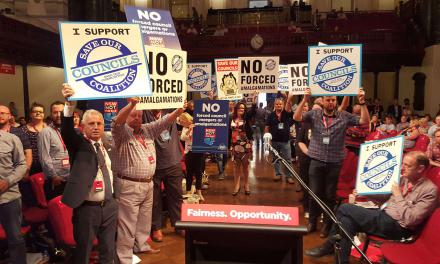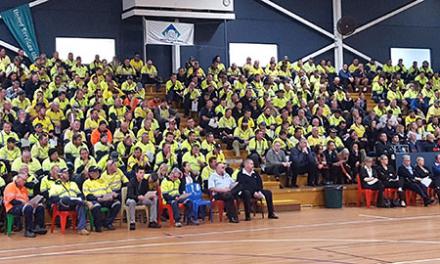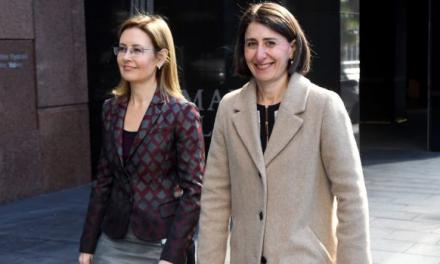Premier Berejiklian has completed a backflip so impressive she’s in the running for Tokyo 2020, however as Graeme Kelly argues in his Sydney Morning Herald article she still has a long way to go if she wants to demonstrate a genuine commitment to restoring democratic principles rather than just acting to avoid an anticipated backlash at the upcoming council elections.
 For all her talk of restoring democracy, Premier Gladys Berejiklian’s council merger backflip revealed a dark truth about how politics in NSW now works: the best outcomes go to those with the deepest pockets.
For all her talk of restoring democracy, Premier Gladys Berejiklian’s council merger backflip revealed a dark truth about how politics in NSW now works: the best outcomes go to those with the deepest pockets.
Councils with substantial financial resources – mostly from affluent areas – were able to launch costly legal battles that eventually forced a policy reversal. Meanwhile, other communities across Sydney where working-class ratepayers didn’t have the same financial resources have been told the forced mergers that occurred against their will are here to stay.
This is no outlier. The NSW government is increasingly having its policies driven by those with money, power and influence, while ordinary voters – the very people impacted by changes – are shut out of the process.
Premier Berejiklian defended her backflip by saying: “I want every single person, when they go to the ballot box on September 9, to have confidence that whoever they elect will be their local representatives.” Yet just a year ago her government sacked hundreds of elected councillors across the state, replacing them with appointed administrators.
Her commitment to voters also fails to extend to giving them an actual choice on whether forced mergers remain in place, or on the substantial changes to services and staffing that have occurred during 14 months of undemocratic administration.
For those people,who have watched in horror as their local government was operated like a medieval fiefdom by an unaccountable administrator making binding decisions without debate, this is an unacceptable outcome.
Our members, who work on the front-line at these councils, have reported cases of multi-million-dollar contracts being awarded without tenders and major changes to staffing levels and service arrangements. In one case, an administrator awarded a $68 million contract despite being forced to admit a serious conflict of interest. The administrator said he took action to remove the conflict as soon as he became aware of it and revealed it for the sake of transparency.
Premier Berejiklian has already completed the hardest move – a backflip so impressive she’s in the running for Tokyo 2020 – but she still has a long way to go if she wants to demonstrate a genuine commitment to restoring democratic principles rather than just acting to avoid an anticipated backlash at the upcoming council elections.
The first thing the NSW government must do is finally provide an opportunity for the residents of every merged council to vote in a binding plebiscite on their preferred outcome. This process, which would allow an open community debate about the benefits and drawbacks of each model, would deliver a form of government that actually responds to the desires and preferences of particular communities. Any community that voted to unwind an amalgamation should also be given the state government’s full support to facilitate that outcome.
Next, Premier Berejiklian should commit to changes to the Local Government Act that prevent any future government from forcibly amalgamating local governments against the will of the community. This legislative change should enshrine a process of consultation ending with binding plebiscites that cannot be sidestepped.
It should also wind back the power of future administrators, ensuring major decisions and contracts are determined by elected councillors.
And finally, the NSW government should ensure newly elected councillors at merged councils have an opportunity to review the appropriateness of every decision made by appointed administrators, ensuring actions that conflicted with the public interest or breached probity standards are overturned, with improper contracts deemed void.
The success of local government has always relied on its responsiveness and ability to engage with the local community. That process broke down when Mike Baird decided to launch a heavy-handed takeover of the sector.
Premier Berejiklian has taken a good first step, but if she’s genuinely interested in restoring local democracy then it’s time to give workers, ratepayers and residents a genuine say in their future.
By Graeme Kelly, General Secretary, United Services Union.




